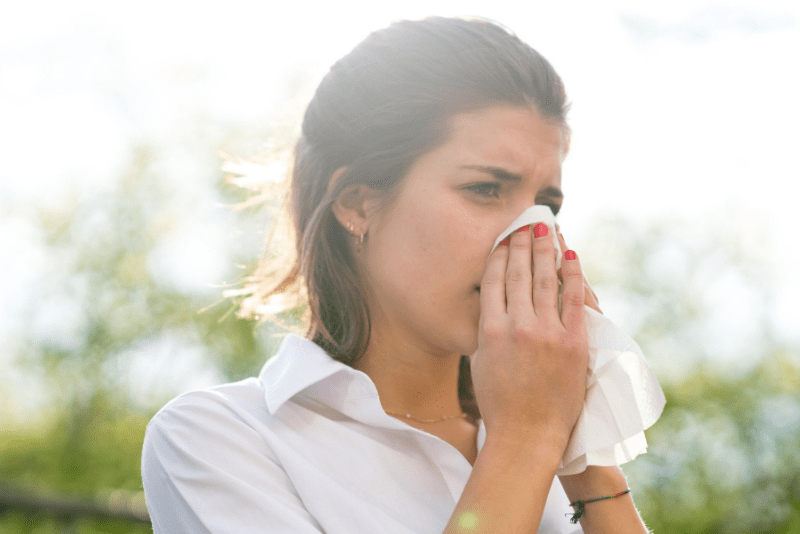Parenting comes with plenty of surprises and unexpected adventures, some of which may include helping your child overcome various health obstacles such as allergies. However, with the proper education and support of your board-certified allergist, you can ease much of the stress surrounding your child’s safety. To help you take charge, we’ve put together some helpful tips to give you the parent power you need!
Schedule an allergy test.
First and foremost, you need to identify your child’s allergies if you have not already done so. Even if you are fairly confident in what those allergies might be, the confirmation from an allergy test performed by a board-certified allergist will direct you on the right path with clear certainty. Allergy testing comes in multiple forms, including skin tests, intradermal tests and blood tests to identify a wide range of allergens from foods to environmental triggers.
Education doesn’t end with school.
You are most likely not an allergy expert, so it is important to educate yourself on your child’s condition. You can do so by researching the specific allergies your child faces and identifying causes, symptoms and complications. Great educational resources include:
- Your child’s board-certified allergist
- Allergy-specific sites such as the American Academy of Allergy, Asthma and Immunology and the American College of Allergy, Asthma, and Immunology
- Other parents that have children with the same allergies
Aside from educating yourself, it is also vital to educate your child. Make sure they know their triggers and how to communicate them to individuals unaware of their allergies.
Invest in the proper treatment.
Certain allergy symptoms, especially those caused by pollen, can be alleviated through allergy medications such as antihistamines like Claritin. While these over-the-counter medications can be successful, allergy shots, a form of immunotherapy, are the closest solution to a cure for allergies. Backed by decades of testing and research, allergy shots and other forms of immunotherapy target the immune system to help promote tolerance to these allergens. More severe allergies that may cause anaphylaxis require acute treatment with an EpiPen to return blood flow to the heart, reduce swelling and facilitate proper breathing. For certain food allergies, oral immunotherapy can help alleviate symptoms and sensitivities. With certain medication allergies, there may be desensitization protocols your allergist could consider. Finding the proper treatment for your child can do wonders for their health, reducing and removing symptoms.
Create an allergy-friendly home.
Some allergies require extra measures to make sure your home is a safe environment for your child. Depending on your child’s various allergies, here are specific ways you can keep your home allergy-free:
For severe food allergies, this includes removing these allergens from your fridge and/or pantry and switching to alternatives that will not cause allergic reactions. Common allergens and alternatives include:
- Nut butters: sunflower butter
- Egg: banana and ground flaxseed in baking
- Cow’s Milk: almond, coconut and oat milk
- Wheat flour: gluten-free mixes, coconut flour and almond flour
- Tree nuts: seeds
For animal fur allergies, think before adopting a furry friend into your home. Keep in mind that even hypoallergenic pets are not 100% allergen-free. To reduce allergy symptoms, consider pets with less dander and make sure to keep them off of areas like furniture and bedding.
For dust mite allergies, make sure to continually clean your house to remove any dust buildup. This includes washing sheets weekly and putting items prone to dust mites, such as stuffed animals, in the freezer once a week to kill dust mites.
For pollen allergies, avoid spending too much time outside during peak pollen seasons and be sure to wash clothes thoroughly or bathe when coming inside.
Alert schools, friends and family.
Your home should not be the only allergy-friendly space for your child. It is important to note that if your child suffers from severe allergies from food, materials like latex or medicine such as penicillin, those around you need to be made aware. Make sure to alert your child’s school of their allergies so they can take the correct precautions to ensure a safe environment for your child. Meeting with your child’s teacher can be a great way to fully educate them on your child’s situation. Aside from the school, be sure to inform any supervisors of extracurricular activities that your child may be involved in.
When it comes to friends and family, make sure everyone is fully aware of your child’s allergies so they can take the proper precautions to ensure a safe environment. While there are certain measures that friends and family can take, that doesn’t mean there isn’t still risk involved. To ensure your child’s safety, limit playdates that occur outside of your home and ensure your child is educated on what triggers to avoid.
You are not alone.
Here at Charleston Allergy and Asthma, we know how challenging it can be to manage and care for a child with allergies, and we don’t want you to walk alone. Our board-certified allergists are here to help educate you and treat your child’s allergies, knowing that your not-so-normal situation doesn’t have to be isolating. Book an appointment with one of our board-certified allergists today.




